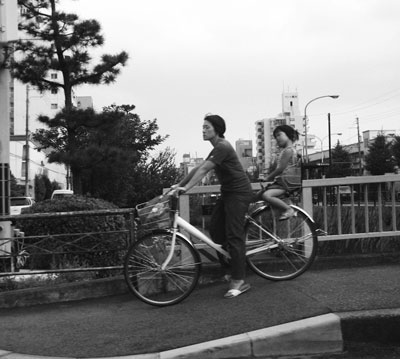All Nonfiction
- Bullying
- Books
- Academic
- Author Interviews
- Celebrity interviews
- College Articles
- College Essays
- Educator of the Year
- Heroes
- Interviews
- Memoir
- Personal Experience
- Sports
- Travel & Culture
All Opinions
- Bullying
- Current Events / Politics
- Discrimination
- Drugs / Alcohol / Smoking
- Entertainment / Celebrities
- Environment
- Love / Relationships
- Movies / Music / TV
- Pop Culture / Trends
- School / College
- Social Issues / Civics
- Spirituality / Religion
- Sports / Hobbies
All Hot Topics
- Bullying
- Community Service
- Environment
- Health
- Letters to the Editor
- Pride & Prejudice
- What Matters
- Back
Summer Guide
- Program Links
- Program Reviews
- Back
College Guide
- College Links
- College Reviews
- College Essays
- College Articles
- Back
Anthem by Ayn Rand
In the short novel called “Anthem” written or created by Ayn Rand, the city applied critical and strict rules or regulations on the people of the city, including Equality 72521. The City is run by the different types of Councils and they likely have these numerous rules and controls to have everyone think and be alike and to dumb down the community. Having everyone think alike or be equal would lead to no particular feelings for one another, which would lead to the city’s success where the only thing the people would do is work, instead of creating love or feelings; which was illegal in the city. An example brought or expressed in the short novel was told about Equality 72521. Equality 72521 among his “brothers” was told that he was cursed or evil because of how giant he had grown or how much bigger his bones had grown than the rest of the group. The council or city had assigned Equality 72521 a job that would balance him out with the rest of the community of the city or population, which was to work as a Street Sweeper. Though Equality 72521 wanted or wished to work or be assigned as a Scholar, the Council members of 5, that they would consider elderly would be around the age of 40, had only spoken with little breath, “Street Sweeper”. Not only did these rules intervene with the citizen’s feelings, but also their knowledge. In the story, Equality 72521 illegally read and gained knowledge from “forbidden” and stolen manuscripts, because the city did not want the citizens to know much. The City had abolished technology such as electricity, which then Equality 72521 had “discovered”. There can be a couple conspiracies to this. One is that the City would like the Councils to be the dominant or superior ones in the city, so only certain subjects are taught in the Home of Scholars. The Councils or city wanted main character, Equality 72521 and all the others like International 48818, Liberty 53000, and “The Golden One” to all “be as one” so they used the word “we” to describe them as a whole or group, “they” to describe them as a whole or group, or “our” to describe them as a whole or group, rather than use the word “I” to describe one being.
Equality 72521 discovering his new “home” after escaping the city, from where he was penalized or punished by getting whipped or lashed for not confessing where he had been missing to for 3 hours, Equality 72521 and his “Golden One” would have to create laws or rules of their own. Equality 72521, being the person to do from his belief or feel for what he thinks is right, Equality 72521 wouldn’t have rules or laws set as near as the one back in the city. Equality 72521 is after all going to go back to bring all his old friends to the “new city or home”. Equality 72521 broke many laws or rules back in the City where his “brothers and sisters” are at because he wanted to do things many of his “brothers and sisters” didn’t want to do. This makes Equality 72521 more likely to make it “legal” or legalize several things the city doesn’t allow to be legal, such as the freedom to love and create feelings, the freedom to read or learn, the freedom to become one or to use the word I instead of we, they, or our; and the use of names instead of creating makeup names or temporary names. Equality 72521 creates a glorious word that he calls “the sacred word: Ego”, which is defined as one’s selfesteem or selfimportance. This goes with Equality 72521 having his own almost forming personality that leads to his selfimage in his new society. Just like how his new society would consist of many different personalities without a law to make everyone equal.

Similar Articles
JOIN THE DISCUSSION
This article has 0 comments.
